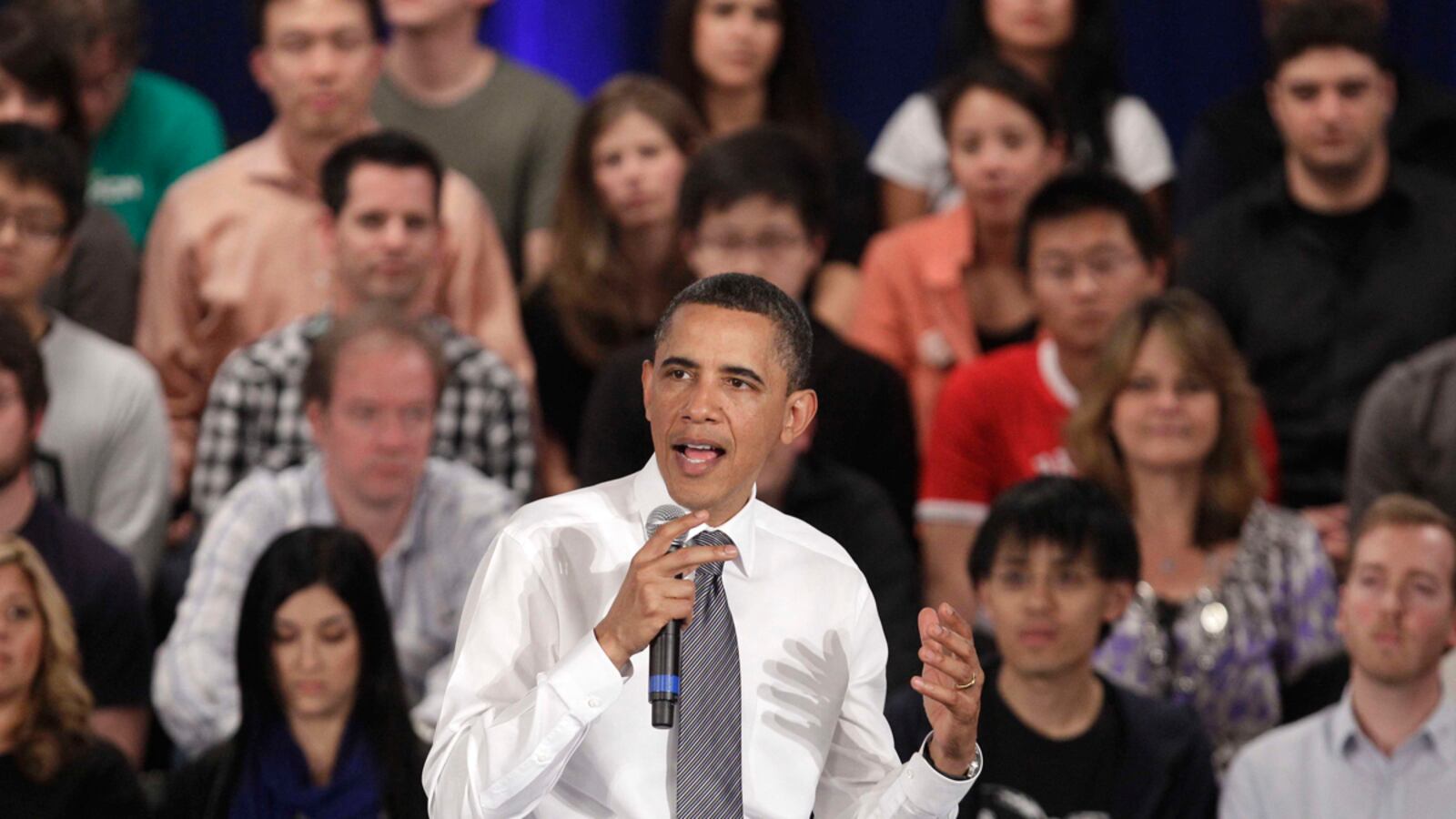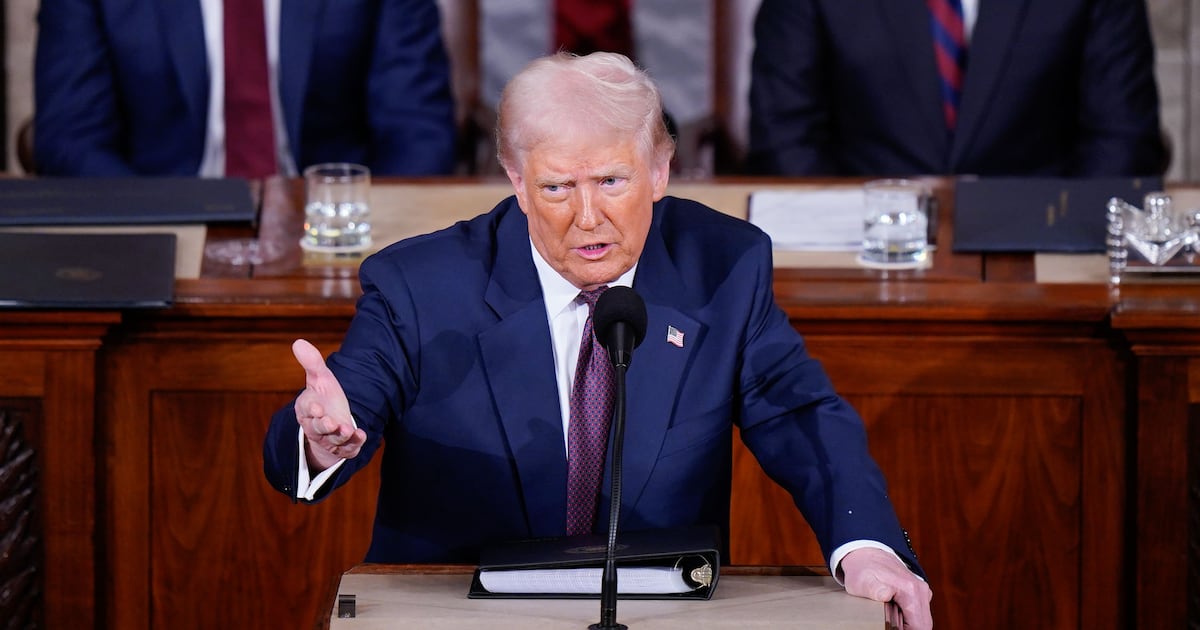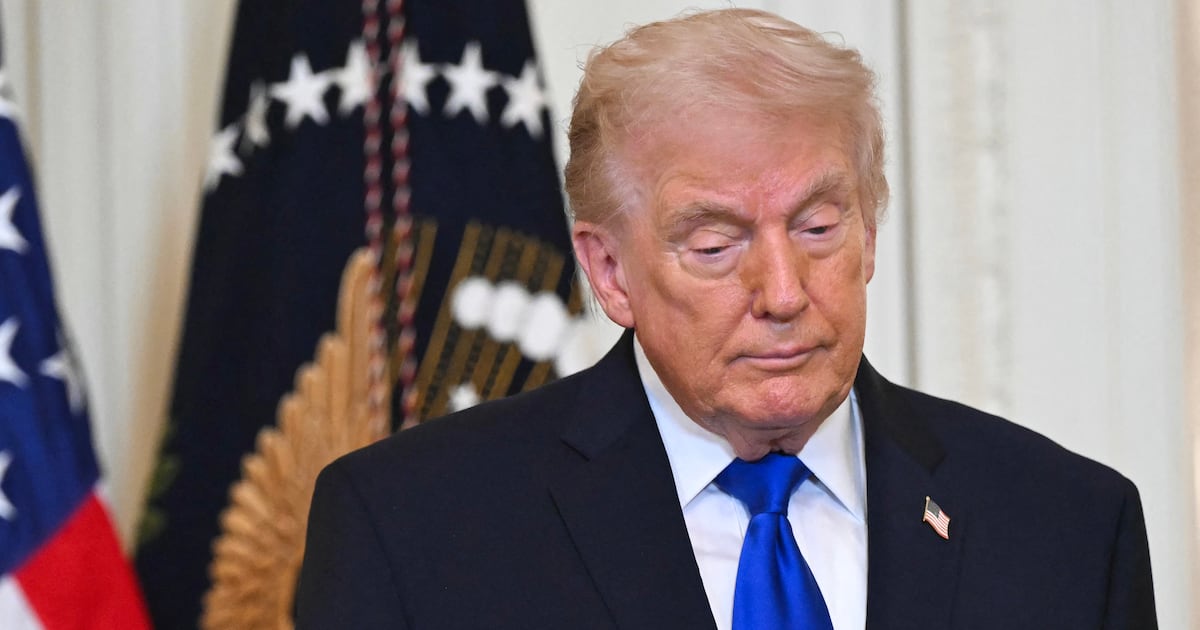Did President Obama give away the farm, as one disgruntled liberal tweeter claimed? Or did he salvage what he could for himself, his party, and his priorities heading into the 2012 election, given the solid wall of conservative resistance in the House and Senate?
The final verdict is far from in. But one could argue that Obama has at the very least given himself a shot at a second term.
The president’s top priorities have been to avoid a default this week and to make sure the debt ceiling is raised high enough to get through the 2012 election. Assuming the not–so-grand bargain makes it through Congress, those missions are accomplished, and they are not small.
Consider that a default could have crashed the U.S. economy and maybe even the global economy. Or the damage that could have come of a second round of conflict-ridden negotiations over raising the debt limit six months from now—a rematch the GOP would have savored. There seems to be little question that the country’s AAA credit rating would have been downgraded absent a major deal, bringing a rise in interest rates for everyone who has a credit card or needs a loan.
The ongoing jobless “recovery” is bad enough as it is. It’s hard to see how Obama could have survived a reelection campaign if the economy were also weighed down by a default or paralyzed by yet more months of congressional conflict and dysfunction.
Liberals are beside themselves about the initial phase of the compromise, nearly $1 trillion in spending cuts that underscore Obama’s repeated failure to make any headway at all on “shared sacrifice”—closing corporate tax loopholes and raising tax rates on wealthy Americans. Obama has another chance to make good on those goals during phase two of the debt compromise, when a bipartisan congressional committee will consider both tax and entitlement reform.

Whatever happens won’t please liberals who don’t want Social Security and Medicare to be touched. But their interests are different from Obama’s, and their ideologies may be as well. They would like to attack Republicans next year for their votes to turn the government Medicare program into vouchers to help seniors buy private insurance. That idea is enormously unpopular in polls.
Obama, meanwhile, needs to appeal to independents and moderates who are interested in deficit reduction and compromise, and he is not opposed to tweaking entitlements even if it robs his party of an effective political tactic. “Despite what some in my own party have argued, I believe that we need to make some modest adjustments to programs like Medicare to ensure that they’re still around for future generations,” the president said Sunday night.
David Plouffe, Obama’s senior adviser, explained Obama’s thinking—and why liberals should appreciate it—on ABC’s This Week. “The president believes that we need to reduce the deficit. This isn't about playing on a Republican playing field,” he said. “We have to live within our means. And if you're a progressive, there's a powerful case for deficit reduction. If the deficit isn’t reduced soon, Plouffe said, “we’re not going to have room” to spend money on college loans, college scholarships, medical research, or roads and bridges.
Some liberals are still pressing for Obama to simply declare the debt ceiling raised by invoking the 14th Amendment, which says in part that “the validity of the public debt of the United States, authorized by law … shall not be questioned.” Plouffe said the administration has looked at that option and it wouldn’t work. “The only way out of this is for Congress to act,” he said. He added that the debt ceiling has been raised dozens of times, and it shouldn’t take a constitutional crisis for the nation to pay its bills.
On Twitter, liberalchik, a "political junky liberal" from Oklahoma, made the same point, but in a different way. “The cost to past presidents to raise the debt ceiling: zero ... The cost to President Obama to raise the debt ceiling: the farm” she tweeted Sunday, clearly exasperated with her president.
Disenchanted liberals may eventually think better of Obama, especially if the next stage of the deficit deal produces some of that “shared sacrifice.”
If it doesn’t, according to some reports, Obama would veto any extension of Bush tax cuts that are set to expire in 2012. That gives him some leverage, if he chooses to use it, and could restore his macho cred among some disillusioned supporters.
In the end, though, for all kinds of reasons, Obama has to think about the economy first. There’s nothing more important to Americans, to the world or to his own reelection prospects.






